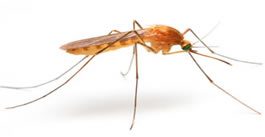
Australian operated

5.0
30 reviews

5.0
30 reviews

Australian operated
Free on-site visit & quote
Over 14,000+ homes protected
5/5 stars is most frequent rating

There are more than 3,500 species of mosquitoes all over the world and 300 different species in Australia. Many female mosquitoes are carriers of dangerous diseases. The most common type of diseases is Dengue Fever, Ross River Virus Disease, Encephalitis and Barmah Forset Virus Disease. In addition, these insects’ causes major disruption in the human population may it be in recreational, social or occupational activities through their persistent biting and buzzing. A mosquito’s bite is also irritating to the skin; it causes itching, redness and swelling in the bitten area.
A female mosquito can live up to 2-3 weeks and the male mosquitos life span is shorter. Both male and female adult mosquito will feed on plant fluids, but only a female will seek blood for protein source for the development of her eggs. There are factors that can attract female mosquitoes to bite, these includes body odours, carbon dioxide, heat or air movement. The female lays her eggs in stagnant water, on hatching the larvae grows through four stages of instars after two weeks of development it will turn into an active pupa from which will become a mosquito after 2 days, then later feed, mate, develop eggs for another generation of mosquitoes.
To manage the occasional mosquito inside the home, use a flying insect aerosol and spray directly towards the insect. Spraying into the air will create a fine mist of insecticide that mosquitoes will fly through. If you notice a large number of mosquitoes indoors (particularly if you don’t have insect screens), apply insecticide to common resting areas during the day. These often include dark, sheltered spots such as behind cupboards and drawers, under furniture, and behind picture frames.
Reducing mosquito numbers outdoors can be achieved by spraying surfaces where they typically rest. This includes under eaves, decking roofs and flooring, beneath plant leaves, and along exterior walls near outdoor entertaining spaces. Treating these areas around your home helps create a “mosquito interception zone” for added protection.

At Pest-Ex, mosquito control usually begins with a thorough inspection to assess the level of infestation and locate breeding sites. From this assessment, a tailored treatment plan is created, which may include spraying insecticides, applying larvicides to water sources, and recommending preventative measures. The overall Price depends on several factors, such as the size of the area, the severity of the problem, how often treatments are needed, and the methods used. Knowing these elements helps you understand the costs involved in professional mosquito control services.
Adult female mosquitoes usually live for 3–4 weeks, while males only survive for around a week. The full life cycle from egg to adult can be completed in as little as 5 days in warmer climates, but more commonly takes about 2 weeks. In cooler conditions, it can take longer.
Mosquitoes detect carbon dioxide released when animals and humans breathe, allowing them to locate a host from a distance. As they get closer, they use body heat and chemicals released from the skin to find their blood meal.
In general, mosquitoes are not strongly attracted to UV light, which is why bug zappers are ineffective against them. Whether mosquitoes are drawn to or repelled by light depends on the species and the time of day. For example, night-biting mosquitoes avoid light during the day. Because of this, light traps are not considered an effective mosquito control method.
In most regions of Australia, mosquitoes are most common between November and April. In tropical northern areas, they can be active all year round.
Biting behaviour varies by species, but most mosquitoes in Australia are active at dawn and dusk (twilight), following their natural body clock.
Mosquitoes are weak fliers and usually remain close to their breeding sites. After feeding on blood, they rest to digest the meal and develop eggs, which are then laid in nearby aquatic environments. Eggs can remain dormant until warmer weather triggers hatching.
To reduce mosquitoes around your home, remove standing water where they breed, such as in bird baths, gutters, or plant saucers. Use repellents, citronella candles, or install outdoor screens to help keep them away. Mosquito traps or professional treatments from Pest-Ex can provide long-term protection. Planting mosquito-repellent plants like lavender or citronella grass can also help minimise their numbers.







